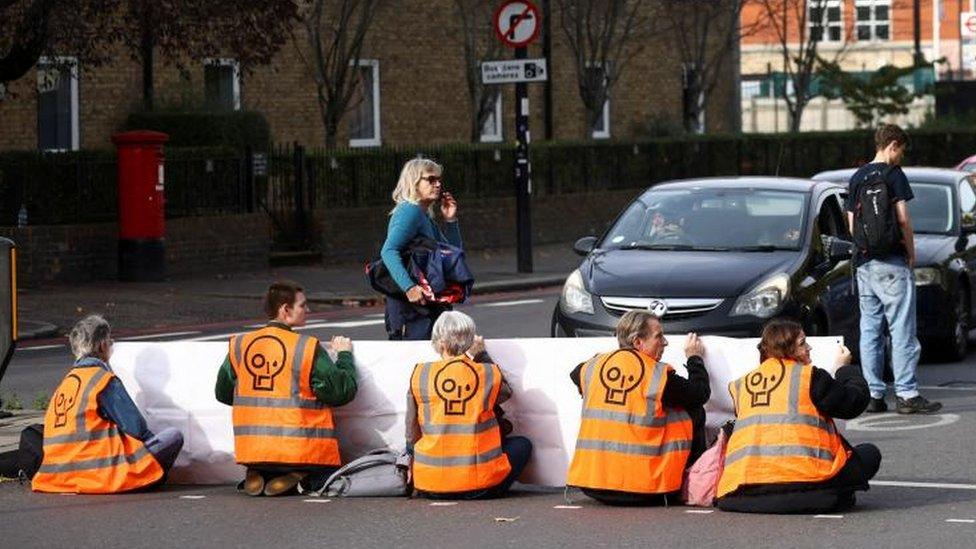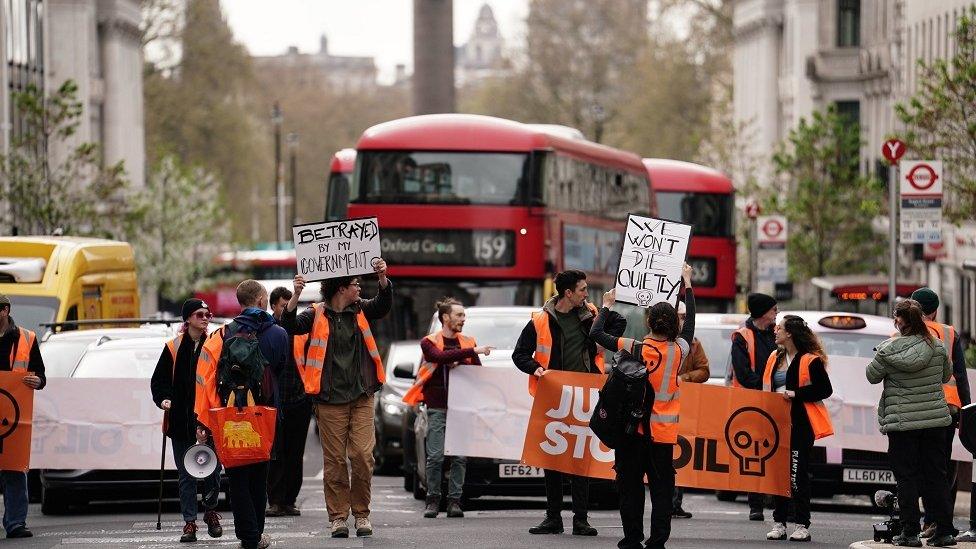Protests: Police powers to stop new tactics come into effect
- Published

New measures aimed at curbing protest methods often used by environmental groups have come into effect.
Police in England and Wales now have powers to move protesters who disrupt transport, while offenders could face three years in jail for tunnelling.
The Home Office says the Public Order Act 2023 will target "a selfish minority" but critics argue they threaten the right to protest.
Groups such as Just Stop Oil have continued with high-profile protests.
Under the new laws, those found guilty of tunnelling or "being present in a tunnel to cause serious disruption" could be jailed for up to three years.
Taking equipment to a tunnel carries a maximum penalty of six months in prison, as will obstructing major transport works.
The digging of makeshift tunnels has been used for many years as a form of protest, against projects such as the building of the HS2 rail project, as well as by groups such as Extinction Rebellion and Just Stop Oil.
The British Transport Police and the Ministry of Defence Police will now have powers to move static protests, a common tactic of campaign groups.
Home Secretary Suella Braverman said the heightened measures will target "selfish protesters" who cause "mayhem" on the streets.
In recent months, the government has also introduced new powers to tackle tactics used by protest groups, including slow-walking and "locking on".
Despite the enhanced measures, environmental groups have continued to take action, including briefly halting Saturday's annual Pride parade in central London in a protest against one of the event's sponsors.
A Just Stop Oil spokesperson told the BBC the "draconian" measures were targeting young people who "just want a liveable future".
Extinction Rebellion urged the government to stop curtailing the right to protest and instead "stop issuing new licences for oil, coal and gas".
Related topics
- Published28 April 2023
